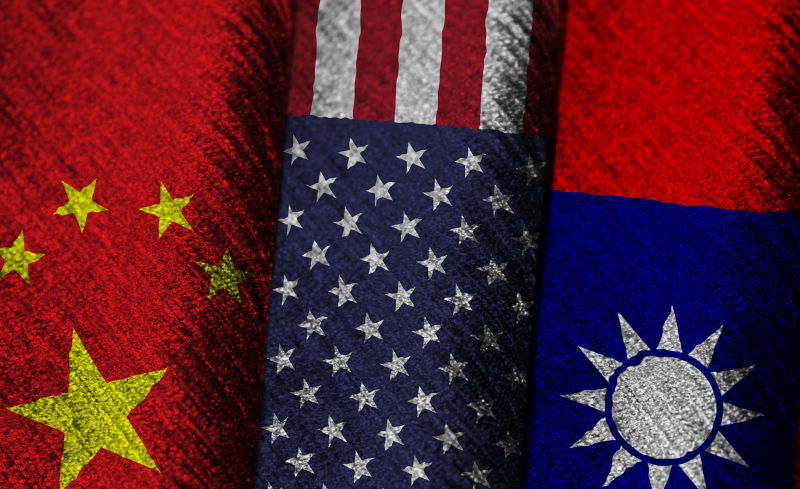Weve long said no to US. A yes now could be nuclear
March 20, 2023
Its Parliament House, Canberra, on a Sunday afternoon. There is a meeting of the national security committee of cabinet, chaired by Prime Minister Anthony Albanese, about a crisis in the Taiwan Strait, where the US and China are in air and naval combat. Theres an inflection point when someone a minister or the PM uses the fatal locution: Well, weve got no alternative . . .
No alternative, that is, to our PM walking across the corridor to place a call to the Oval Office to tell the US president that, in the words of the World War I recruiting song, Australia will be there.
I can see this scene in my minds eye, right down to the Parliament House coffee cups and the briefing notes stamped Top Secret. It terrifies me because there is an alternative to sleepwalking into a ruinous and horrific war in which we make ourselves a target and just possibly a nuclear target.
With Vietnam, Afghanistan and Iraq, we were fighting peasant militias. This will be the first war we have entered against a nuclear power. Members of cabinet will be well advised to record their versions because if any Canberra decision will be subject to a searching inquiry, such as Britains Chilcot inquiry into Tony Blairs commitment to the Iraq war, it will be this. A decision to enter a cross-Straits conflict will overshadow everything else the Albanese government does. It will define it, as Iraq defined Blair.
Its wrong to assume our military brass are unanimous. They know our capabilities are limited. None of our naval vessels is protected from Chinas sea-skimming missiles and, once inside contested waters, would be sunk. Wed get licked, one of our defence chiefs said, Im told on good authority.
The enmeshment of our submarine defences with those of the US sent the message we are signing up to a war over Taiwan. But we have no treaty with Taiwan. And former foreign affairs minister Alexander Downer, in a burst of honesty in 2004, said ANZUS did not oblige us to act. That a US-China showdown has a more-than-modest chance of becoming a nuclear exchange is the consensus of experts. A French diplomat told me recently that great powers can use surrogate targets. We offer half a dozen, with Pine Gap and the Tindal RAAF base topping the list. Like taking out Guam, this would be a less catastrophic decision for China than picking a target on the US mainland.
It is a heresy to cast Taiwan as an outgrowth of our alliance with the US. Our longest-serving Liberal prime minister, Robert Menzies, assiduously kept Australia away from any notion the ANZUS Treaty, ratified in 1951, would oblige us to join a US war with China or, in fact, oblige us to do anything other than consult Washington.
During the 1955 Taiwan crisis, Menzies went to Washington to persuade president Dwight Eisenhower not to go to war with Beijing over Taiwans offshore islands. When president John F Kennedy proposed Australia take the initiative to form an anticommunist New Pacific Community, including Taiwan, Menzies was once more brave enough to say no to our ally. Yes, there is an alternative to the fatalism of a shoulder shrug and saying Australia will be there.
Foreign Affairs Minister Penny Wong has spoken of the need for guard rails around great power competition. She has used language about the Taiwan Strait, for example, on the provocative visit to Taiwan by US Congresswoman Nancy Pelosi, that enshrines the diplomatic status quo more explicitly than President Joe Biden.
Wong and Albanese must elevate what she calls our constructive internationalism and commit to peace-building between the US and China. In private we should tell China that to use military force will lead to its diplomatic and economic isolation. Some strategists think this a bigger deterrent than a military showdown which China stands a good chance of quickly winning.
Wong can build on her strong diplomacy among the 10 nations of ASEAN which stand, like us, to be impoverished and shell-shocked by the furnace of an East Asian war. We can become a gutsy, nagging advocate for peace engaged, by the way, with India which, despite its Quad membership, will never join a war in East Asia. There is a resilient diplomatic formula on Taiwan that preserved the peace for 70 years. If detente could be nurtured between the Soviet Union and the US under Brezhnev and Nixon, why cant it be revived for China and the US? Henry Kissinger, one of detentes authors, warns we are looking at a catastrophe comparable to World War I, and he knows his history better than the armchair warriors in the Australian Strategic Policy Institute or the US Studies Centre.
More should have been made of comments by the outgoing spy chief Paul Symon. Stepping down as head of the Australian Secret Intelligence Service, he said war between major powers is no longer unimaginable. He added there should be no automatic assumption that Australia would join the US in any war with China over Taiwan. That is, according to our own version of the CIA, we are right to assume we still control the destiny of this continent and its people. We have the right to say no.
This is a shared article from the Sydney Morning Herald eEdition March 18, 2023

